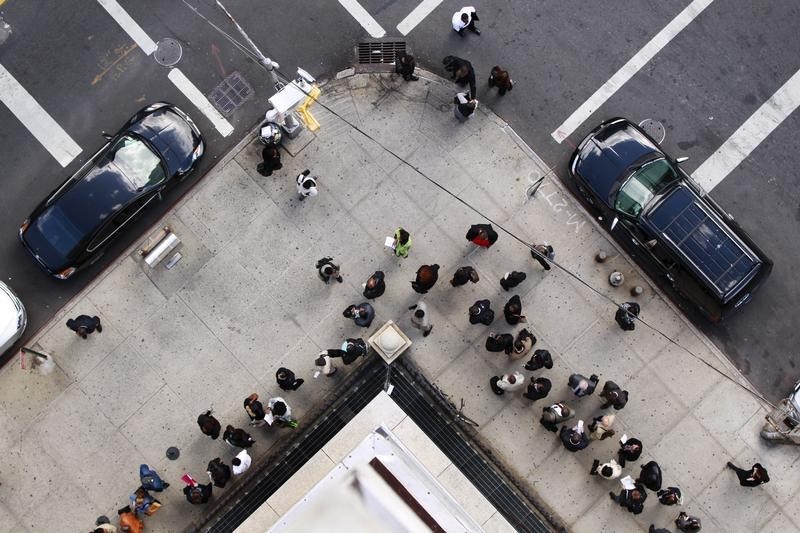(Bloomberg) -- President Donald Trump’s executive action may have kept higher U.S. unemployment benefits in place for now, but potential payment delays and a cap on the funds could still leave low-income Americans in the lurch.
Trump sought to bypass a deadlocked Congress by ordering payments of $400 a week, a reduction from the $600 federal top-up that was approved in March and ran out at the end of July. The extra money has helped millions of U.S. households get through the pandemic amid a record wave of layoffs.
While it’s still too early for economic data to capture what happened when the payments stopped last week, Claudia Raymer -- who oversees a network of food-security groups in Ohio County, West Virginia -- saw an immediate impact.
On Wednesday, a soup kitchen that she helps organize served almost 400 meals, the most since April. The following day, a separate summer program that distributes food via a local school ran out of boxes to give away, for the first time in weeks.
“We’ve definitely already seen food-security needs increase, just in a week, since the extra unemployment has ended,’’ Raymer said.
The resumption of payments under Trump’s executive order, which diverts emergency funds into the benefit program, should alleviate some of the strain.
But the president’s move faces a potential legal challenge. Economists also warn that it may take time to get a rejigged system up and running.
“Before you even get into these questions around the legality of what the president is promoting, just practically, it’s not something that’s going to be a solution quickly for millions of people,” said Tendayi Kapfidze, chief economist at online loan marketplace LendingTree.
The Treasury was disbursing money to state unemployment systems at a pace of about $100 billion a month between May and July. Payouts in the first week of August were on track to be the lowest since April.
That means there’s also a risk that the $44 billion emergency fund that Trump proposes to draw on could run out relatively fast.“It’s a very complex crisis with a lot of moving parts, and there just hasn’t really been a good, comprehensive solution as of yet,” Kapfidze said.
©2020 Bloomberg L.P.
